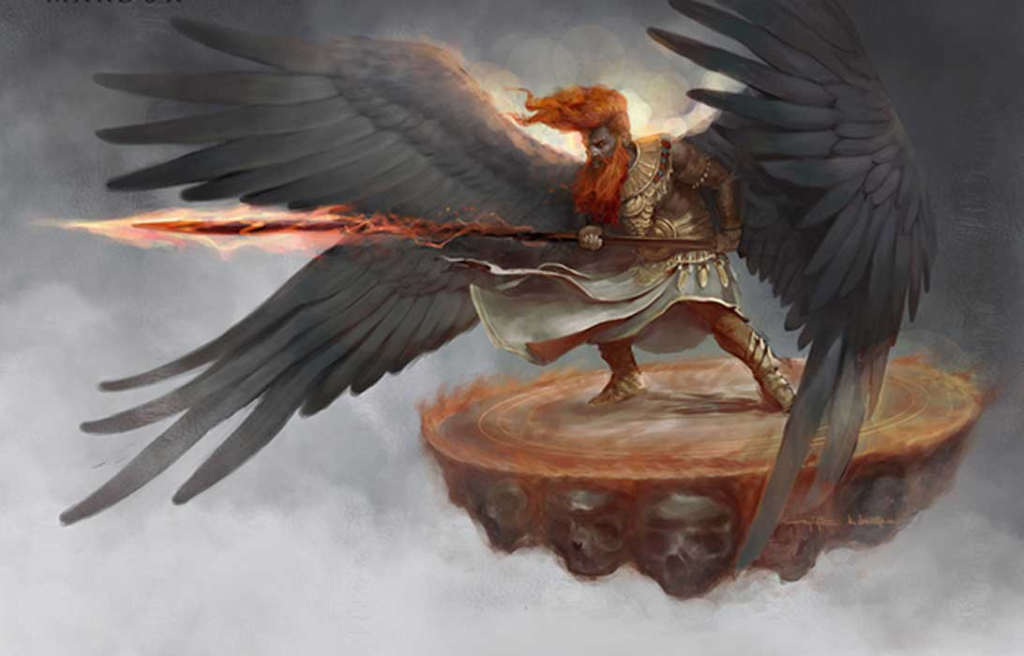
UPDATED 17 AUGUST 2018 – 02:04 VERONICA PARKES
Most people have heard of:
- Zeus
- Odin
- Jupiter
but not many have heard of Marduk.
Gods & Religions on Planet Earth – Library of Rick and RIA (RARE Information Access)
Born to the mother and father of all Babylonian gods, Marduk clawed his way to the top becoming the head of the Babylonian Pantheon.
Where Was Babylon & Does It Still Exist? – Library of Rick and RIA (RARE Information Access)
He fought against his mother and father to help mankind hold back the forces of chaos, his likeness brought both peace and pestilence to the lands surrounding Babylon, and he even helped the Jews rebuild their temples in biblical times.
The memory of Marduk should live on alongside:
- Zeus
- Odin
- Jupiter
as he too was certainly the king of the gods.
Demons: The Pagan Gods of Hell – Library of Rick and RIA (RARE Information Access)
The Origins of a God
Marutuk, Marduk is the ancient Mesopotamian patron deity of the city of Babylon; his name means “bull calf of the sun”.
In the 18th century BC, Marduk began to rise to the position of head of the Babylonian pantheon and was fully recognized as such by the second half of the second millennium BC.
He is often associated with:
- the planet Jupiter
- water
- vegetation
- judgements
and magic.
He is the son of Ea (Enki) and Damkina, and his consort was the goddess Sarpanit.
Who is Ea? – Library of Rick and RIA (RARE Information Access)
His father, Ea, recognized Marduk’s superiority and handed over control of humanity.
Marduk also took over the godly traits of Ea, making him the god of magic.
- Cyrus the Great: Conquests and Death! – Part I | Ancient Origins
- The Fierce Amorites and the First King of the Babylonian Empire | Ancient Origins
- Epic Cosmic Battles and the Forces of Creation and Destruction in Belief Systems around the World | Ancient Origins
In the early 19th century BC Babylon became an independent city, yet it was overshadowed by more powerful Mesopotamian states such as:
- Isin
- Larsa
- Assyria
In the 18th century BC, Babylon grew in power and with it the cult of Marduk also gained influence, thus marking his triumph over Enlil (God of the former Mesopotamian states) and solidifying his place as head of the Babylonian pantheon.
Enûma Elish and the Battle of Marduk and Tiamat
“Enûma Elish” was written in the 18th century BC to recount the glorious rise of Marduk to power beginning with his birth, his heroic deeds, and finishing with how he became ruler of the gods.
The document tells the story of a civil war between the gods.
Apsu (the god of fresh water and the father of the gods) decided to kill his children, the younger gods, at the advice of his advisor.
Tiamat (the goddess of salt water and creation, the consort of Apsu, and mother of the gods) revealed this plot to Ea (son of Apsu and Tiamat), who killed his father.
This threw Tiamat into a rage, and she began to kill her children.
The younger gods were in search of one amongst them who could defeat the gods that were rising against them.
Marduk answered this call and was promised the position of ruler of the gods if he was successful.
To prepare for battle he gathered his weapons and filled his body with flames.
He made a net to encircle Tiamat and called upon the four winds to entrap her.
Marduk and Tiamat faced one another in single combat and Marduk won by piercing her belly with an arrow.
Next, he defeated Kingu (leader of Tiamat’s army) and freed mankind from carrying the burdens of life.
Thus, humans joined forces with the gods to hold back the forces of chaos and to maintain order in the world.
(Ben Pirard/CC BY SA 3.0)
Marduk and the Bible
After Cyrus the Great of Persia was captured in Babylon, he reversed the policies of his predecessor, who had destroyed many temples.
Cyrus the Great – Conqueror or Uber Human Rights Activist? | Ancient Origins
He restored local religious cults in the countries that he controlled and provided funds for the rebuilding of temples.
In the bible, he is credited with allowing the Jews to return to Jerusalem and rebuild the temple of Yahweh.
It is believed, by Cyrus himself, that this act was inspired by Marduk.
In Cyrus’ own records, credit is given to Marduk rather than Yahweh.
BOOKS: YAHWEH – Library of Rick and RIA (RARE Information Access)
The act was memorialized in the “Cyrus Cylinder”, found in 1879 in Babylon:
“Marduk, the great Lord, established as his fate for me a magnanimous heart of one who loves Babylon, and I daily attended to his worship…
I returned the images of the gods, who had resided there [in Babylon], to their places; and I let them dwell in eternal abodes.
I gathered all their inhabitants and returned to them their dwellings… at the command of Marduk.”
(Mike Peel/CC BY SA 4.0)
However, in the Book of Isaiah, it is Yahweh that is given credit for inspiring Cyrus:
I will raise up Cyrus in my righteousness:
I will make all his ways straight.
He will rebuild my city,
and set my exiles free (Isaiah 45:13)
- Mesopotamian Kings Were Slapped in the Face in the Ancient Akitu Festival | Ancient Origins (ancient-origins.net)
- Inside Etemenanki: The Real-Life Tower of Babel | Ancient Origins (ancient-origins.net)
- The Lost Years of Nabonidus, Last King of the Neo-Babylonian Empire | Ancient Origins (ancient-origins.net)
The Marduk Prophecy
The Marduk Prophecy is an Assyrian document dating to 713-612 BC.
THE ORIGINS OF ASSYRIA & GERMANY – Library of Rick and RIA (RARE Information Access)
It was found in a building known as The House of the Exorcist near a temple in the city of Assur.
This prophecy describes the travels of the Marduk cult statue from Babylon.
In 1531 BC the city of Mursilis was sacked and the statue of Marduk was seized and taken to Assyria.
The statue was subsequently taken to Assur and Elam in 1225 BC.
While the statue was in Assyria and Assur, the text explains that the god Marduk graciously agreed to visit, and this was positive for all of Babylon.
His visit to Elam, however, was fraught with disaster, bringing famine and pestilence to Babylon, which the gods had abandoned in favor of following Marduk.
(Public Domain)
Marduk prophesized that he would return to Babylon one day under a new messianic king who would bring salvation to the city and seek revenge on the Elamites.
This king would be Nabu-kudurri-uṣur I (Nebuchadnezzar), 1125-1103 BC.
The work was very clearly written as a propaganda piece for the king after he had defeated the Elamites and brought the statue of Marduk back to Babylon.
(Public Domain)
There is no mention of the statue in any sources past Xerxes’ assault on Babylon.
Similarly, when Babylon was conquered by Alexander the Great in 331 BC there was no mention of the statue.
Therefore, the statue was either destroyed or it has yet to be discovered.
Subsequently, the Babylonian religion was phased out, and the mythology of Marduk began to fade.
Resources
Brisch, Nicole. (2016). “Marduk (god).” Ancient Mesopotamian Gods and Goddesses.
Ancient Mesopotamian Gods and Goddesses – Marduk (god)
Dhwty. (2014). Epic Cosmic Battles and the Forces of Creation and Destruction in Belief Systems around the World.
Miller, M. (2015). The awesome, terrible, and unknowable creator gods through history.
The awesome, terrible, and unknowable creator gods through history | Ancient Origins
New World Encyclopedia. (2014). Marduk.
Marduk – New World Encyclopedia
Top image: Marduk. Source: yigitkoroglu/Deviant Art
OTHER BOOKS
The Ancient Mesopotamians (Myths of the World) – Anna’s Archive
Jealous Gods and Chosen People: The Mythology of the Middle East – Anna’s Archive
Mesopotamia (DK Eyewitness Books) – Anna’s Archive
Ancient Mesopotamian Civilization – Anna’s Archive
SAUCE
Marduk: Babylonian King of Gods and Reportedly Liberator of the Jews | Ancient Origins
Marduk: Babylonian King of Gods & Reportedly Liberator of the Jews
